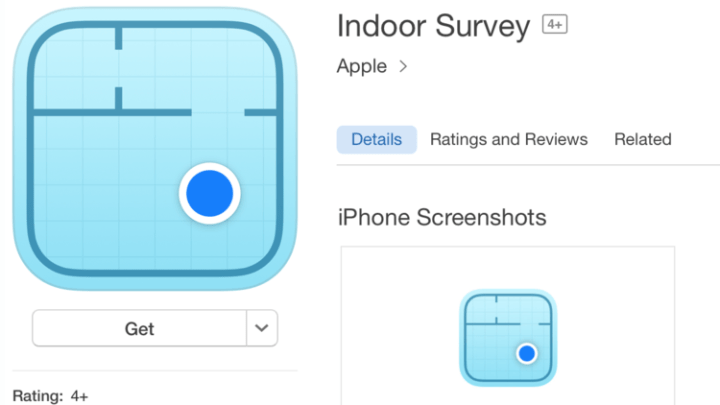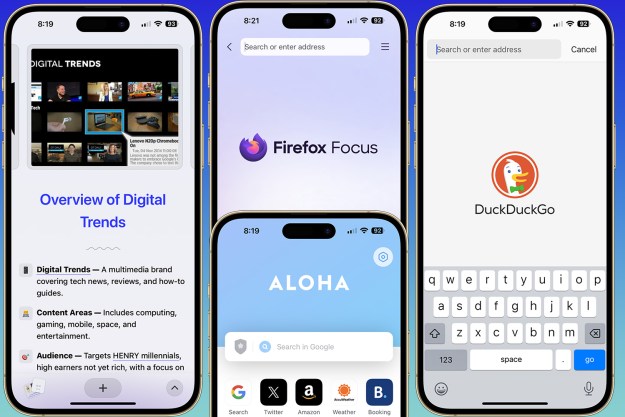
The description for Apple’s Indoor Survey App, which was first spotted on the App Store by developer Steve Troughton-Smith and has since been removed, explained the method in detail. “The Indoor Survey App measures the radio frequency (RF) signal data and combines it with an iPhone’s sensor data.” It’s intended for venues to map out indoor spaces by dropping “points” on a virtual floor plan. “You indicate your position within the venue as you walk through,” the description read. “The end result is indoor positioning without the need to install special hardware.”
The technology, Apple Insider points out, is very reminiscent of the location tracking developed by Silicon Valley-based startup WiFiSLAM, a firm which Apple acquired for $20 million in 2013. (Its “Indoor GPS” analyzed RF signals emanating from access points to determine a device’s granular location.) It’s also similar to RF-Capture, an MIT research project that can track basic devices — in addition to small figures and gestures — through walls using WiFi signals.
Indoor Survey App is far from Apple’s first foray into Bluetooth-free location tracking, though. With iOS 8 in 2013, the company improved the accuracy of indoor iPhone positioning by tapping accelerometer and gyroscope data. In October, Apple invited a select few businesses and organizations to submit floor plans through its new Apple Maps Connect program. (Initial partners included the California Academy of Sciences in San Francisco, the Westfield San Francisco Centre, and the Mineta San Jose International Airport.) And most recently in April, the company was granted a patent to determine proximity based on, among other data, WiFi signal strength and building architecture.
Apple isn’t putting all of its eggs in one basket, though. It continues to seed iBeacons in office buildings, event spaces, and stadiums, and in 2013 the firm rolled them out to all Apple retail locations. But unlike alternative technologies, the Bluetooth iBeacons technologies are susceptible to a major problem: customers switching Bluetooth off. With an RF-based system, the company’s likely hope is that indoor tracking becomes a lot more reliable, not to mention predictable.
Editors' Recommendations
- Nomad’s new iPhone case and Apple Watch band may be its coolest yet
- There’s a big problem with the iPhone’s Photos app
- Everything Apple says is wrong about the DOJ’s iPhone lawsuit
- Mophie made one of the cutest iPhone accessories I’ve ever used
- Your iPhone just got a new iOS update, and you should download it right now


